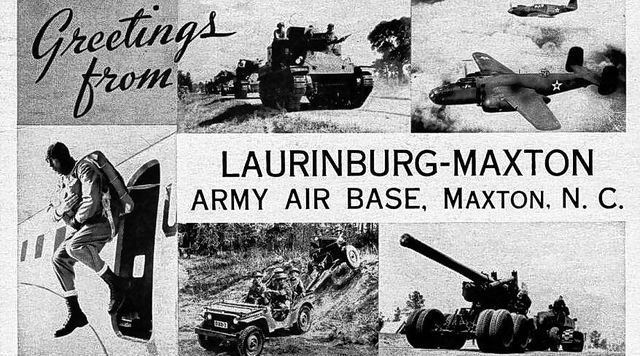MAXTON – Congressman Robert Pittenger has paid homage to Laurinburg Maxton Airport’s role in helping the United States win World War II.
Pittenger’s comments came during a speech last week on the floor of the US House of Representatives.
According to Pittenger, whose District 9 includes Scotland and Robeson counties, the role of Laurinburg-Maxton Army Air Base, often gets lost in the larger details of history like the sacrifices of D-Day, but the base played an important function in D-Day and the War as a whole.
“From 1942 to 1945, Scotland County helped prepare glider pilots for the invasions of North Africa, Sicily, and Italy. Generals Dwight Eisenhower and George Marshall visited the base during the war to observe glider training,” Pittenger told the house.
On June 6, 1944, as 160,000 Allied troops stormed the beaches of Normandy, glider pilots who were trained in Scotland County. Those glider pilots — unarmed and powered only by the wind — carried troops and supplies behind the enemy front to strike key defense posts and transportation lines.
“The brave glider pilots who trained at Laurinburg-Maxton Army Air Base helped secure Allied victory on D-Day,” Pittenger said. “Today, I ask you to join me in honoring these soldiers, as well as the Scotland County community which supported these efforts.”
The former military base, is approximately six miles from Laurinburg.
It was established in October 1942 to train and equip airborne glider units coordinating their training with Army paratroopers, infantry, artillery, engineers and medical units.
The base was one of only a few training bases for the Waco Glider that was used on D-Day and other missions during the war.
The gliders often carried a typical load of thirteen troops, a jeep with crew, or a 75 mm pack howitzer and its crew, according to the website History on the Net.
The glider would be towed by a larger plane to “within range of its objective,” the towline would be released and the glider’s crew would make a landing or drop paratroopers.
Like other airbases Laurinburg Maxton airbase was nearly self-supporting containing hospitals, dental clinics, as well as the standards dining halls, hangars, barracks, warehouses, and maintenance shops. The base also included libraries, stores and social clubs for officers and enlisted men.
Troops and pilots trained in Scotland County found themselves deployed to theaters in North Africa as part of Operation Torch in November 1942, and invasions in Sicily and Italy 1943.
In 1944 Laurinburg–Maxton airbase became a training center for student officers in advanced glider techniques and ground fighting. C-47 pilots were also taught how to tow the CG-4A Waco gliders.
Bowman Field in Kentucky had formerly been the tow training site, but Laurinburg/Maxton base’s proximity to Fort Bragg made it more desirable.
Use of the base began to dwindle in the summer of 1945 as soldiers and airmen were discharged or transferred to other bases. In early September, just after the Japanese surrender, the base population was just over 3,700 personnel, and by the end of the September it had decreased to 914. The base was deactivated in October the same year.
The base was then converted for civilian use, and the airfield was revamped into Laurinburg–Maxton Airport.
The base hospital became Scotland Memorial Hospital, and most of the other base buildings were torn down or sold off and moved over time.


